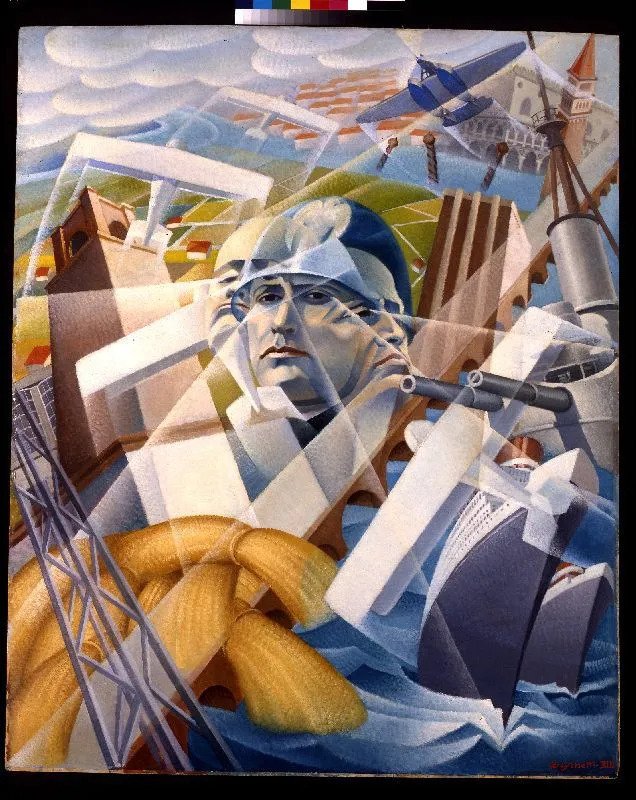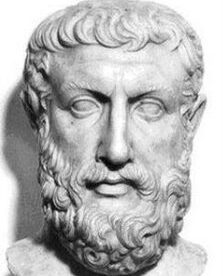
Evidently there are reasons why we ought to be cautious of Giorgia Meloni, but she certainly comes off as a more sane individual than Draghi, the criminal who tyrannized Italy during these past two years. Though women should not be in politics, at least it will be easy for this one to surpass the reputation of her predecessor.
Hopefully this victory does not stall right wing activism in Italian public life. Considering that she has been rightly been dubbed a “populist”, a comparison to Donald Trump here in the United States is fitting. One of the dangers of Trump was that he gave people a sense that they could sit back and not fight in the culture war simply because “their guy” got into office. This is a crucial moment in Italy’s history, and it needs to be exploited by the right forces.
We are coming up on 100 years of the March on Rome, and if the Italian right is to truly win, they must learn from the success of the Fascist movement that preceded them. For a political movement to win, it cannot be confined to merely winning elections, but it must also seek social victories. It must be social and political, for a movement can only truly win if it wins hearts and minds. The Fascists understood this, since their worldview was a spiritual one, not a materialistic one, one concerned not merely with externals, but the internals of a people, a civilization:1
The basic idea of Fascism indeed is the spiritual interpretation of history. Fascism is a definite revolt against materialism, that is, against all forms of interpreting the universe from a purely naturalistic or purely individualistic standpoint.
James Strachey Barnes, The Universal Aspects of Fascism and Fascism (234)
Fascism may be defined generally as a political and social movement having as its object the re-establishment of a political and social order, based upon the main current of traditions that have formed our European civilisation, traditions created by Rome, first by the Empire and subsequently by the Catholic Church. Conversely, Fascism may be defined as the repudiation of that individualist mentality that found expression first in the Pagan Renaissance, then in the Reformation and later the French Revolution, which issued in “Capitalism,” itself the product of the Reformation.
Ibid (63)
When Barnes, who was a Catholic, writes “spiritual”, he truly means “Catholic”. There are plenty of gems in this book, wherein he illustrates the unity between Catholic and Italian Fascist thought. Additionally, in his work The Universal Aspects of Fascism, one will find a very favorable preface by none other than Mussolini himself. Thus this Anglo-Italian’s presentation of the Fascist worldview was sanctioned by Il Duce.
The Italian right needs to turn to Catholic Tradition, for it can provide the only true basis for a resistance to the banal and charlatan spirit of modernity. These nationalists must realize in order to save their country, they must work on trying to save their own souls and those of their countrymen in that apostate land. While some of them already understand this, more of them need to, or else they will simply fall into the same kind of materialistic outlook as the liberals and reds they oppose.
What does this mean in practice? For one, they must put off the pro-Russian slant among themselves,2 as nothing good will come materially or spiritually from supporting Putin’s Neo-Bolshevik regime. They must instead focus on assisting the growth of Tradition in their lands, and they must put themselves under the protection of the Blessed Virgin, but also St. Francis of Assisi, the patron of their country. Special attention should be given to defending and participating in the local Catholic festivals and processions scattered throughout Italy in honor of the patron of a given town or city, and to reclaim these from the modernists. Rosary rallies are of course an excellent public witness to our Faith.
There are evidently many other recommendations that can be made, but the essential point is to emphasize the authentic Catholic faith as the center of the community in a given locality, to build said community, and to expand from there to other provinces. Italy was once a very Catholic country, so there is obviously a lot there that needs to be reclaimed from the enemies of God. I write not only in terms of physical space, but also cultural space as well. Admittedly this will take time. Yet, Rome was not built in a day, and neither shall it be rebuilt in one.
While it would be certainly silly for Catholic Americans to import 1930s Italian Fascism into our country, we can learn much from that ideology and apply its universal principles to our own social action. We ought to do this while maintaining a truly American identity, cleansed from that awful heresy of Americanism. Let us heed the advice of Barnes himself:
Fascists in each country must make Fascism their own national movement, adopting symbols and tactics which conform to the traditions, psychology and tastes of their own land. Do not seize on the accidentals of the movement or you will be in danger of missing the essentials. Remember that though truth is universal, its acceptance need never make the world the same colour, for in its application to the individual case is born variety. It is only falsehood that is drab. The infinite variety of the Universe is in reality a perpetual testimony to its essential unity, a chorus in harmony in praise of its Maker, One God in three Persons.
Ibid (208-209)
- This and the other quotations in this article given from this volume are lifted from the edition entitled The Universal Aspects of Fascism & Fascism published by Reconquista Press.
- Zabrinsky, Zarina. “Putin’s Funding of Italy’s Far-Right: The Pivotal Role of Aleksandr Dugin.” Byline Times, 4 Sept. 2019. https://archive.ph/iOvCT.
